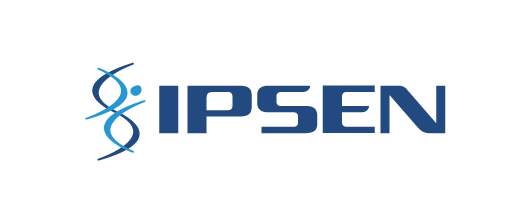Paris (France), 15 November 2018 – Ipsen (Euronext: IPN; ADR: IPSEY) today announced that the European Commission (EC) has approved Cabometyx® (cabozantinib) 20, 40, 60 mg as a monotherapy for hepatocellular carcinoma (HCC) in adults who have previously been treated with sorafenib. This approval allows for the marketing of Cabometyx® (cabozantinib) in this indication in all 28 member states of the European Union, Norway and Iceland.
“Today’s EC approval for the use of Cabometyx® provides a much needed new option for HCC patients. Until now, physicians in Europe had only one approved therapy for the 2nd line treatment of this aggressive and difficult-to-treat cancer.1,2 We are proud to offer Cabometyx® as an innovative treatment that has been shown to extend survival in previously treated patients with HCC”, said Harout Semerjian, Chief Commercial Officer, Ipsen, “This new indication reinforces Ipsen’s commitment to improve patients’ lives through the expansion of the clinical benefit of Cabometyx® in the treatment of solid tumors.”
Philippe Merle, M.D., Ph.D., Hepatology and Gastroenterology specialist at La Croix-Rousse Hospital, Lyon, stated: “Patients with HCC in Europe can now benefit from a treatment that has, through the CELESTIAL trial, proven effective in prolonging life and delaying disease progression. This is a very encouraging development for liver cancer patients, and provides physicians with a new therapeutic option for this complex disease.”
The EC approval is based on the results of the global placebo-controlled CELESTIAL phase 3 pivotal trial which met its primary endpoint of overall survival (OS), with cabozantinib providing a statistically significant and clinically meaningful improvement in OS compared with placebo in patients with advanced HCC who have been previously treated with sorafenib.3 In July 2018, CELESTIAL phase 3 pivotal trial results were published in the New England Journal of Medicine.3
The EC has also approved Cabometyx® for the treatment of advanced renal cell carcinoma (aRCC) both in treatment-naïve adults with intermediate or poor risk (May 2018) and in adults following prior vascular endothelial growth factor (VEGF)-targeted therapy (September 2016).
1 Stivarga (regorafenib) EU Summary Of Product Characteristics
2 ESMO HCC Clinical Guidelines, Ann Oncol 2018 ; 29 (Supplement 4): iv238–iv255, 2018
3 Abou-Alfa GK et al. Cabozantinib in Patients with Advanced and Progressing Hepatocellular Carcinoma. N Engl J Med. 2018 Jul 5;379(1):54-63.
4 McGlynn KA, London WT. The Global Epidemiology of Hepatocellular Carcinoma, Present and Future. Clinics in liver disease. 2011;15(2):223-x. doi:10.1016/j.cld.2011.03.006.
5 Ferlay J, Soerjomataram I, Dikshit R, et al: Cancer incidence and mortality worldwide: sources, methods and major patterns in GLOBOCAN 2012. Int J Cancer 136:E359-86, 2015
6 GLOBOCAN International Agency for Research on Cancer (IARC). Available at: http://gco.iarc.fr/today/factsheets-cancers?cancer=7&type=0&sex=0
7 GLOBOCAN International Agency for Research on Cancer (IARC). Available at: http://globocan.iarc.fr/Pages/burden_sel.aspx
8 Annals of Oncology 23 (Supplement 7): vii41–vii48, 2012








